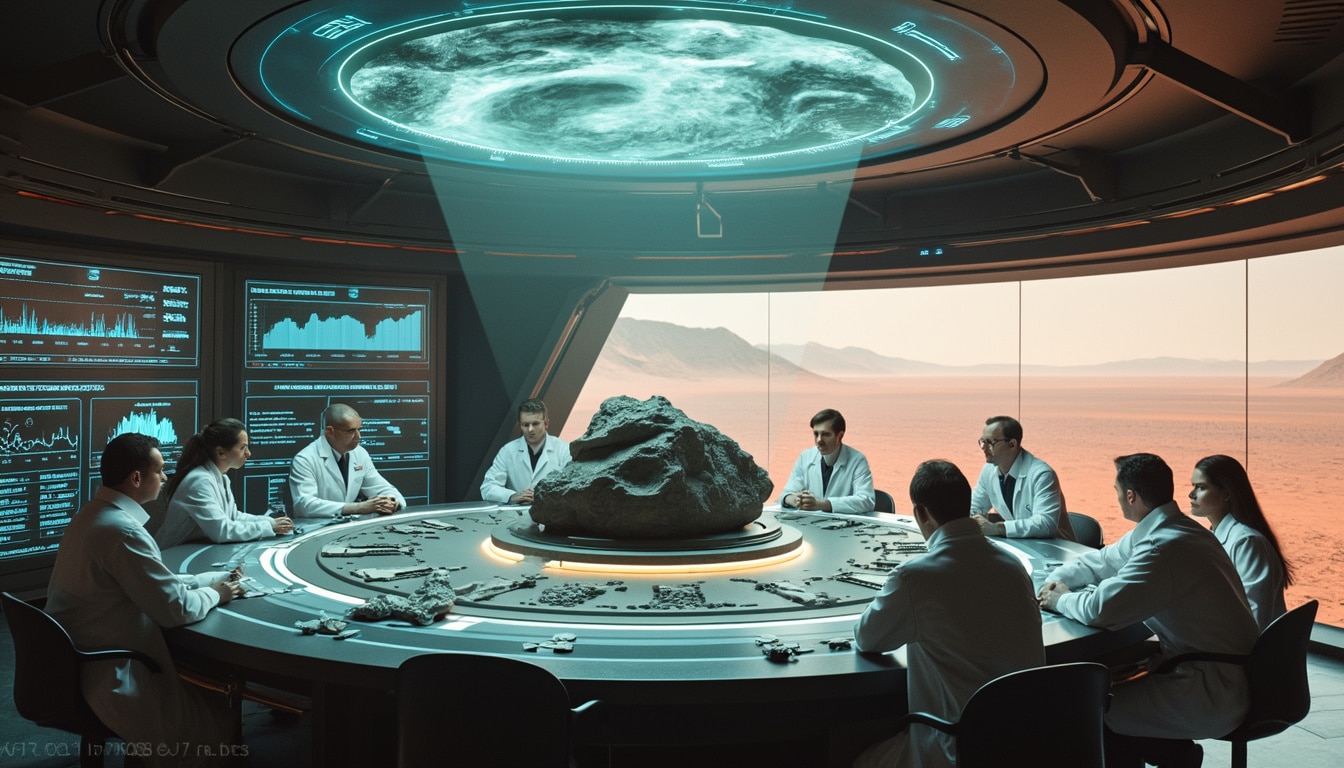In recent developments, a bipartisan coalition within Congress has raised alarms regarding potential reductions to NASA’s science budget. Both Republican and Democratic leaders have voiced their apprehensions, emphasizing the dangers these cuts could pose not only to the United States’ position in space exploration but also to its broader scientific capabilities. The proposed budget for fiscal year 2026 suggests slashing NASA’s science funding by nearly 50%, a move that critics argue could jeopardize national security and compromise technological advancements. As the debate unfolds, the future of several critical missions, including the much-anticipated Mars Sample Return (MSR) mission, hangs in the balance, highlighting the importance of robust funding in maintaining America’s leadership in space.
The Threat of NASA’s Budget Cuts
The revelations regarding NASA’s proposed budget cuts have cast a long shadow over the scientific community. With the Trump administration’s draft budget suggesting a drastic reduction in NASA’s science allocation, leaders from both sides of the aisle are stepping forward to condemn these plans. The co-chairs of the Congressional Planetary Science Caucus, Reps. Judy Chu (D-Calif.) and Don Bacon (R-Neb.), expressed their serious concern in a joint statement, warning that such cuts could not only dismantle the U.S. space economy but also threaten national security. They highlighted the drastic reduction from $7.3 billion in 2025 to a meager $3.9 billion for 2026, calling the proposed budget “extremely alarming.” This steep decline is expected to severely impact numerous missions, particularly in light of NASA’s ongoing endeavors to push the envelope in space exploration.

Impact on Science and Innovation
The implications of these proposed budget cuts extend far beyond immediate financial concerns; they threaten to undermine decades of scientific research and innovation. Various crucial missions, including the development of the Roman Space Telescope, are at risk of cancellation if the budget is passed as proposed. If implemented, these cuts could result in the premature termination of a myriad of ongoing programs that track planetary science and the search for extraterrestrial life. Chu articulated her fears regarding this matter, stating that the defunding of the MSR mission would erase years of investment and jeopardize the jobs of countless researchers and scientists across the nation. Supporting agencies like Lockheed Martin and Northrop Grumman may also feel the repercussions, as if NASA’s budget shrinks, so does the funding available for collaborative projects beneficial to technology advancement.
The Role of Bipartisan Leadership
This bipartisan response is significant; Republican opposition is crucial in rallying broader congressional support against these detrimental budgetary measures. With visible support from Bacon, who has emphasized the importance of enlightening fellow members of Congress on the merits of planetary science funding, there is momentum to counteract the administration’s plans. Initiatives by bipartisan groups not only showcase the cooperative spirit in Congress but also emphasize the potential power of a unified approach in safeguarding the ongoing vitality of NASA’s missions and projects. Continuous dialogue among legislators could pave the way for more robust funding structures that prioritize innovation and discovery.
The Crucial Nature of NASA’s Missions
The missions undertaken by NASA play an instrumental role in enhancing our understanding of the universe. One of the most talked-about projects is the Mars Sample Return Mission, which aims to bring back samples from the Martian surface for meticulous study. This initiative holds potential not only for realizing technological advancements, but also for paving the way to understanding the history of Mars, its past climates, and the possibilities of past life on the Red Planet. Without the necessary funding and support, such landmark explorations may be unceremoniously halted.

Scientific Achievements and the Future
NASA has accomplished remarkable feats in the realm of space science and exploration over the decades. Missions like Voyager and Hubble have opened our eyes to the vast cosmos, while the most recent achievements with the Perseverance rover and its successful sample collection underline NASA’s commitment to pushing the frontiers of science. These advancements signal the rise of new partnerships with private companies such as SpaceX and Boeing, which promise to enhance coordination in space traffic management and other areas vital for future explorations. Unforeseen setbacks due to budget cuts could undo hard-earned progress and diminish American leadership in international space exploration.
Community and Industry Support
As proposed budget cuts loom over NASA’s future, the reactions from various stakeholders in the space community deepen the narrative. Companies like Raytheon, Sierra Nevada Corporation, and Maxar Technologies, along with institutions working on innovative technology solutions, have all voiced their stakes in NASA’s programs. Reductions in NASA’s budget would directly impact private sector contracts, threatening job stability and innovation across these companies. In a time when global competition is intensifying, community engagement and support for maintaining robust funding are essential not just for NASA but for the entire U.S. space industry. Keeping public interest alive through campaigns and awareness initiatives will be crucial in pushing back against proposed funding cuts.
Future Considerations for NASA Funding
The discussions surrounding NASA funding are evolving daily, reflecting the changing landscape of legislative priorities. As representatives from both parties seek to promote the benefits of space science funding, the outcomes remain uncertain but critical. The projected cuts could hinder the fundamental progress that has been made over the years and restrict NASA’s ability to work alongside partnered organizations for complex projects. Ensuring that adequate resources remain accessible for scientific endeavors will be a focal point in any upcoming negotiations.

Innovative Strategies to Enhance Budget
Innovative funding strategies may emerge as a viable response to threats posed to NASA’s budget. Efforts to create new partnerships with commercial space firms and other nations may expand collaborative project opportunities while boosting the robustness of U.S. space programs. Ongoing dialogues aimed at educating policymakers on the importance of investment in scientific research—including environmental sciences and climate studies—will also serve to reaffirm NASA’s essential function in addressing pressing global challenges. By tapping into transnational collaboration, NASA can align its objectives with wider scientific goals, which will aid in garnering public goodwill and commitment to funding.
The Role of Public Advocacy
As the public becomes more informed about the effects of budget cuts and the importance of NASA initiatives, grassroots advocacy will play an essential role in shaping future funding decisions. Encouraging community engagement and partnerships with educational institutions can galvanize support for funding science initiatives. Promoting the successes and aspirations of NASA through social media and other platforms will harness public enthusiasm and channel it into meaningful political action, nudging federal representatives to prioritize funding for space science and exploration.
Keywords related to NASA’s budget cuts: NASA, SpaceX, Blue Origin, Lockheed Martin, Northrop Grumman, Boeing, Raytheon, Planet Labs, Sierra Nevada Corporation, Maxar Technologies.
| Company | Impact of Budget Cuts | Potential Opportunities |
|---|---|---|
| NASA | Reduced missions and project cancellations | Need for advocacy and partnerships |
| SpaceX | Fewer contracts for crewed missions | Increased collaboration opportunities |
| Blue Origin | Project delays and fewer launches | Exploration partnerships |
| Lockheed Martin | Missed contract opportunities | Emerging technologies and defense contracts |
| Northrup Grumman | Limited project funding | Innovative partnerships within commercial space |
| Boeing | Halting recent advancements | Exploratory technology development |




Leave a Reply